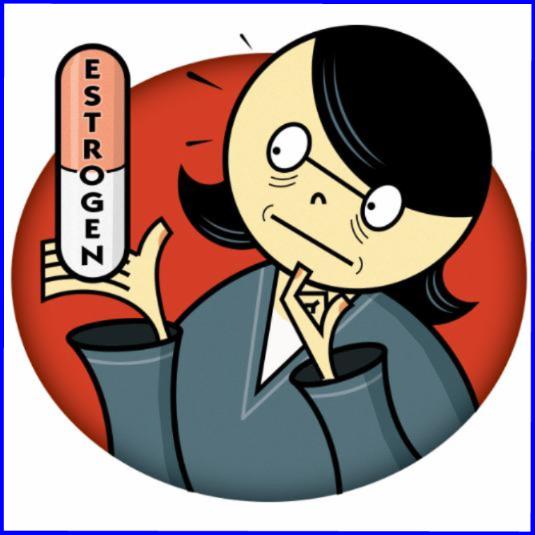20-Year Medical Study Proves Obvious: Women Are Different
Vital Information for Your Everyday Life

 If you’ve ever found yourself confused by news stories concerning post-menopausal hormone therapy, you are in good company. Company that includes the Women’s Health Initiative. After a lengthy study that began in 1991, the only conclusion that could be reached was that there is no guaranteed effect for all women who take hormones. In other words, all women are different. And it only took 20 years and $625 million to figure that out.
If you’ve ever found yourself confused by news stories concerning post-menopausal hormone therapy, you are in good company. Company that includes the Women’s Health Initiative. After a lengthy study that began in 1991, the only conclusion that could be reached was that there is no guaranteed effect for all women who take hormones. In other words, all women are different. And it only took 20 years and $625 million to figure that out.
You’ve read the frightening headlines that post-menopausal women taking estrogen+progestin (E+P) were at a higher risk for stroke, breast cancer, heart attack, even dementia. When that news first came out in 2002, the women taking E+P immediately stopped and the study was halted. Then, women taking only estrogen were at risk, but had a lower risk for stroke. Okay. But then, it depended on when the women started treatment in relation to when they started menopause, and variant upon variant was thrown into the mix. So, that’ll throw a study off.
“I think it’s the nature of doing large randomized trials,” said Andrea Z. LaCroix, the lead author on the Journal of the American Medical Association study and professor of epidemiology at the Fred Hutchinson Cancer Research Center in Seattle. “You may get answers you didn’t expect.”
Well, there’s human beings for you.
Despite the obvious outcome that all women are not created equal as far as their heath goes, progress has been made on women’s health. Hormone therapy was prescribed without question in the 1980s and early 1990s, and it was important for this kind of information to come to light. For example, it is most definitely risky for older women to begin hormone therapy several years after menopause. And the combination of E+P definitely poses a higher risk of breast cancer than estrogen alone. Things like this are undisputed. But when it comes to other possible complications, it’s up in the air.
One of the most valuable lessons may be that not all postmenopausal women are medically the same. “I think there is unfortunately a tendency to oversimplify the idea that one size fits all,” said Dr. [JoAnn E.] Manson. “Women are different — it’s relevant to almost every medication and almost every intervention.”
The research is going to continue with a focus on vitamin D, which has been thought to have no real benefit to conditions such as heart disease and breast cancer. Many women take it for osteoporosis, but further studies will find out just exactly what it’s good for. Or not good for. Or okay for, under certain circumstances. One reader on the NYT Well blog put it best:
“I have lost all confidence in the studies dealing with female hormone replacement.”
In other news, eggs are good for you this week.
(The New York Times via The Hairpin)
Have a tip we should know? [email protected]